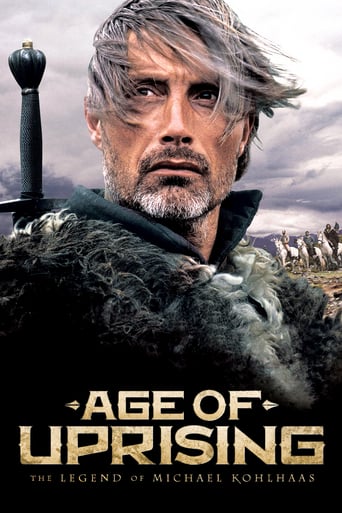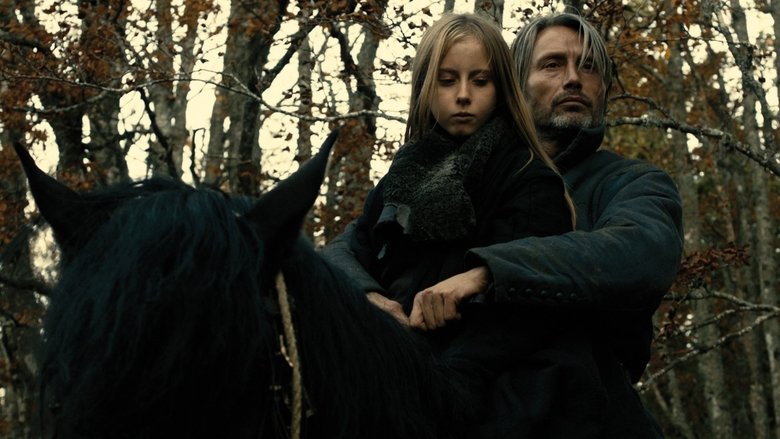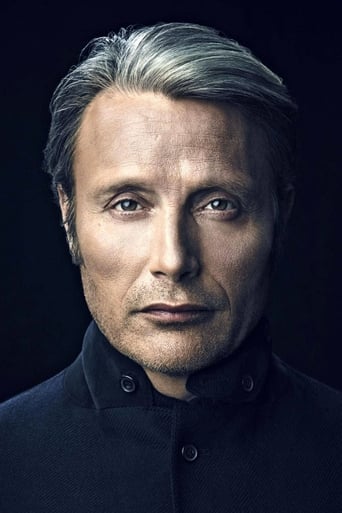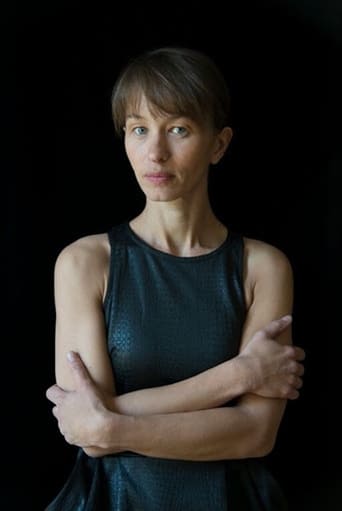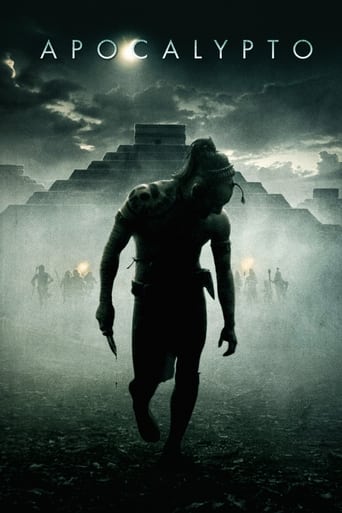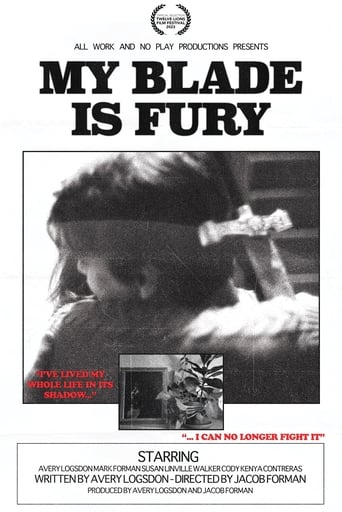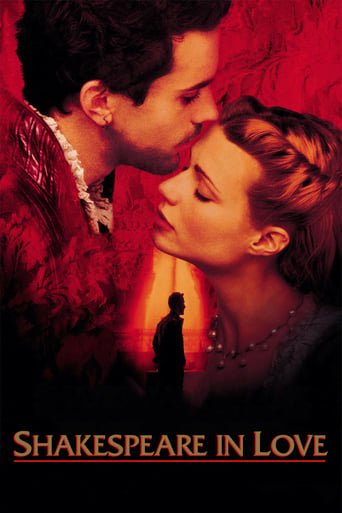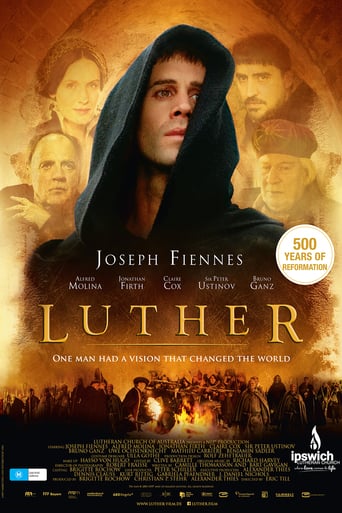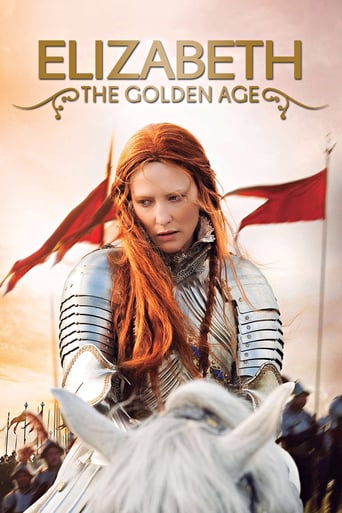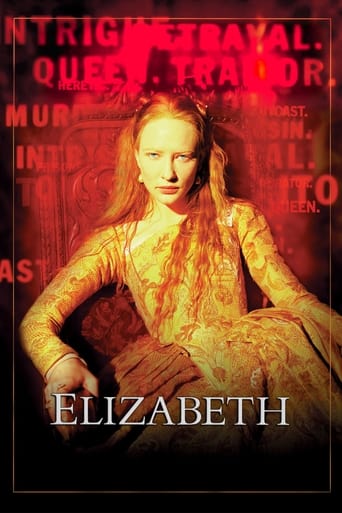Age of Uprising: The Legend of Michael Kohlhaas (2014)
In the 16th century in the Cévennes, a horse dealer by the name of Michael Kohlhaas leads a happy and prosperous family life. When a lord treats him unjustly, this pious, upstanding man raises an army and puts the country to fire and sword in order to have his rights restored.
Watch Trailer
Cast


Similar titles
Reviews
Excellent but underrated film
The film makes a home in your brain and the only cure is to see it again.
A terrific literary drama and character piece that shows how the process of creating art can be seen differently by those doing it and those looking at it from the outside.
The film never slows down or bores, plunging from one harrowing sequence to the next.
AGE OF UPRISING: THE LEGEND OF MICHAEL KOHLHAAS is an interesting film about a mini revolution that took place in historical France. It's often a beautifully shot film, breathtakingly so at times, and it features a typically strong performance from Mads Mikkelsen in the lead role. Mikkelsen plays a sympathetic figure, a man who becomes oppressed to the extent that he has no choice but to fight back.The problem with AGE OF UPRISING is that it goes out of its way to be as slow and arty as is humanly possibly. There's an hour's worth of plotting and incident dragged out to two hours, and boy, does it drag. Each scene plays out for far too long, and everything seems to be deliberately subdued and painstakingly detailed. Now, I do appreciate all of the lovely scenery, and having seen this in high definition I can say it's a visually stunning film.But movies are about more than the visuals, and in that respect AGE OF UPRISING disappoints. The traditional storyline is a familiar one and nothing much happens that hasn't been seen elsewhere. In the end you can only sit back and enjoy it to a degree - and roles for the likes of Bruno Ganz help - but without getting more fully invested in a more involving movie.
In this day and age of fast scenes and bloody gore, apparently this movie left some critics calling it dull and lifeless. Not me.The measured pace was right for this film. It's simplicity was correct and fitted the era. By simplicity, I mean the lack of 'Hollywood-ised' scenes that we're used to seeing about peasants, barons and queens.If you're a thinking person who enjoy very good actors, a movie that travels at a pace that reflects an actual story about human beings, social justice and conflicts, irony and dilemma, the stuff of life, this is a powerful and intense drama.As always, anyone who fights for what is right, is never seen in a perfect shade of black or white.
Formerly a documentary maker, with one feature ADIEU under his belt, Arnaud des Pallières has obviously taken to heart the description of Von Kleist's 1810 novella as surprisingly modern in theme (a fanatical quest for justice) and style (existentialist detachment posing as a chronicle). Having nailed himself to the mast on these two principles as director and writer Pallières consequently has nowhere to go. The plot, transposed to France rather than Brandenburg, is still set in the 16th Century, and it follows Kleist's novella closely. The fanatical quest for justice is absolutely there but Kleist wrote MICHAEL KOHLHAAS as a novella. Pallières inflates it into a 122 minute film (feels longer) - not kind to Kleist or his actors, especially Mads Mikkelsen, who does all the heavy lifting. The emphasis on Kohlhaas as one of these new-fangled Protestants reading the Bible in the vernacular contributes to our understanding that this man is an outsider and a rebel in his heart. His isolated living conditions contribute to the sense of an outsider. His misreading of the power structure when he first tries to get justice through the courts and again when he orders his followers home again show him to be the outsider – all these things are in the book and in the film. The film lacks dramatic suspense – you are in no doubt what will happen from the opening confrontation with the Baron's men - and only becomes more tedious as we labour towards the conclusion. We crave suspense, light and shade and emotional variations. We don't get them. Many sequences in this film had beginnings and middles but no endings, for example where Kohlhaas and his wife are in bed together and the child comes in and tells them they are making a noise. Right, okay, so then... Some scenes are unnecessary, for instance, where Kohlhaas' adherents are seen learning the hard way that they mustn't loot. Much later Kohlhaas delivers a speech (important in the context of the nature of his revolt against authority) - his followers mustn't steal and mustn't take gifts but must pay for everything they take. Surely one of these two sequences is repetitive and weren't they out of order? In the attack on the Baron's stronghold, I was left very confused about the outcome for the woman and her crying baby. There were a lot of cross bows and arrows flying about. Does Kohlhaas accept killing everyone there or not? There are peculiar lapses in the script – Kohlhaas talks more than once about his children but we only meet the daughter so where are the others? Are his sons with him in the revolt? Apparently not. And who is Jérémie – nephew or neighbour? Existential detachment posing as a chronicle is not a natural fit for narrative cinema, for good reason. As a documentary maker Pallières knows how to make something out of the material available to him but as a narrative film-maker he has refused to shape his story, sticking to his existential detachment etc above. Unfortunately, he isn't Bergman or Brecht. The camera frames tightly on each character but there is never a sense of life going on outside the frame. In this world of people and horses the little daughter seems totally isolated. No other animals exist – where are the chickens, the sheep, the odd cat or mouse on this farm? Pallières is keen on big wide pans – unfortunately they don't give you much to read – men and horses, horses and men, occasionally a wagon. The opening with the long shot on the ridge against a brooding sky of the men leading their horses to market, introducing Michael Kohlhaas and his world, was striking. I accepted the low available light, slightly off-key sight lines, and lack of precision where we were in the set up. After all, we are post-Dogme now. But Pallières' refusal to give us a sense of life beyond the edges of each frame soon made the film airless, relying too much on Mads Mikkelsens' subtle face to keep us emotionally involved. The other actors seemed happy to convey little with their faces – but I sense he and Bruno Ganz who smuggled in a few twitches of the mouth were struggling. And it implies that the director cast for faces rather than performance qualifications. There were some sequences to enjoy – Michael Kohlhaas' dirty bare feet as he walked about the farm; unrolling the bolt of fabric to reveal the dress for his wife after his successful sale of the horses; and the attack by the rebels on the convoy supposedly taking the Baron away, shot from up high on a hill top and watched with detachment. But in the scene where the mother's body is returned home and the little daughter runs and runs and runs it would normally carry a weight of emotion – fear, suspense, horror – but here it's just a lot of running. The editing is chaotic, the flow fractured, and we never know where we are in the story. If this is the fruit of existentialist detachment give me old-fashioned narrative. In judgement – I think the film long, confused and emotionally neutered – but faithful in intent to the novella. But why should books and films be a pure reflection of the other? Maybe Pallières is saying that anyone who isn't familiar with the novella isn't worth the trouble of an explanation about anyone or anything that happens. If he is holding two fingers up to most of his potential audience it's not much of a career move. And he has certainly queered the pitch for the next enterprising but unknown filmmaker who wants Mads Mikkelsen to come work with him. I look forward to Mads Mikkelsens' THE SALVATION for his own take on man against the powers that be. It will be interesting.
I gave this a 5 mostly for technique because that is the strongest point of the film. The film is an encyclopedic article as filmed by an art-house director- at least that was my impression. While the characters had legitimate, sympathetic motivations, and there were a couple of interesting discussions, there was no theme, no thrust, no spirit or spin. The ending is a fizzling out. Mads Mikkelsen, as always, can make anything seem profound, even though he only gets a line per twenty minutes of horse visuals- on the other hand, the horses were beautiful! Lol.My rec: watch this if you really have time to waste, I've certainly seen worse, but don't believe the title, "age of uprising." That implies action. This is a quiet classic or art-house-style flick.

